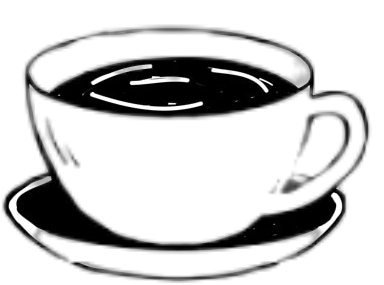
Introduction: Understanding the Mormon Perspective on Coffee
As someone who has navigated the intricate landscape of different cultural and religious practices, I’ve often found myself curious about the lifestyle choices dictated by personal beliefs. One of the most intriguing aspects of the Latter-day Saint (LDS) community, or Mormons as they are commonly known, is their stance on coffee. I’ve spent time with friends who are Mormons, delving into their traditions, beliefs, and the reasons behind their avoidance of coffee. It’s a fascinating topic that intertwines faith, health, and cultural identity.
To truly grasp why Mormons refrain from drinking coffee, we need to consider the historical and theological context behind this decision. This article aims to unravel those threads while sharing personal insights and experiences along the way. By the end, I hope to offer a comprehensive view of this cultural phenomenon and the benefits of alternative beverages enjoyed by those who uphold these beliefs.
The Health Code: A Key Factor in Mormon Life
At the heart of the coffee conundrum lies the Word of Wisdom, a health guideline that was revealed to Joseph Smith, the founder of the LDS Church, in 1833. This document outlines specific dietary restrictions and recommendations aimed at promoting overall well-being. While it encourages the consumption of wholesome foods and warns against the use of alcohol and tobacco, it specifically mentions hot drinks, which Mormons interpret to mean coffee and tea.
From my conversations with Mormon friends, I learned that the Word of Wisdom is more than just a set of dietary restrictions; it represents a broader commitment to physical health and spiritual well-being. The principle behind avoiding coffee, they explained, is rooted in the belief that caffeine can be detrimental to one’s body and spirit. This perspective is particularly relevant when considering how Mormons prioritize a healthy lifestyle, often opting for herbal teas, juices, and other caffeine-free alternatives.
A Personal Experience with Caffeine Alternatives
Having a keen interest in exploring diverse beverages, I decided to experiment with various caffeine-free options that are popular within the Mormon community. One such product that caught my attention was a blend of herbal teas, specifically designed to replicate the comforting experience of coffee without the negative effects associated with caffeine.
I remember the first time I brewed a cup of herbal coffee substitute. The aroma wafted through my kitchen, reminiscent of the rich, inviting scent of freshly brewed coffee. As I took my first sip, I was surprised by the depth of flavor. While it wasn’t exactly like coffee, it had its own unique taste that was both satisfying and soothing. This experience opened my eyes to the wide range of alternatives available for those who choose to avoid coffee.
Exploring Popular Caffeine-Free Alternatives
Why Can't Mormons Drink Coffee? Embracing Herbal Teas
One of the most beloved alternatives among Mormons is herbal tea. These teas come in various flavors, from chamomile to peppermint, and are known for their calming effects. I personally enjoyed a blend that included roasted chicory, which mimicked the robust flavor profile of coffee without any caffeine.
During a recent gathering with my Mormon friends, I introduced them to my herbal coffee substitute. Their reactions were positive; they appreciated the effort and were pleasantly surprised by the flavor. This moment highlighted how embracing alternatives can create a sense of community and inclusivity, allowing those who avoid coffee to enjoy a shared beverage experience.
The Role of Hot Chocolate and Other Warm Drinks
Hot chocolate is another popular choice for Mormons looking for a warm, comforting drink. I’ve seen it served at various gatherings, especially during colder months. The richness of cocoa, combined with milk and a touch of sweetness, creates a delightful drink that feels indulgent yet adheres to the principles of the Word of Wisdom.
I remember sipping hot chocolate by the fireplace during a winter evening, sharing stories with friends. It was a reminder of how drinks can play a significant role in social bonding, regardless of one’s beliefs about coffee.
The Social Aspect: Coffee Culture vs. Alternative Beverages
In many cultures, coffee serves as a social lubricant—a beverage that brings people together. However, for Mormons, who abstain from coffee, this doesn’t mean they miss out on social interactions. Instead, they create their own culture around alternative beverages.
For instance, I’ve attended several gatherings where herbal teas were served alongside various treats. The atmosphere was warm and inviting, with laughter and conversation flowing just as freely as it would over cups of coffee. It made me realize that the beverage itself is less important than the connections formed over it.
Navigating Mixed Social Settings
One of the challenges I encountered was navigating social settings where coffee was the norm. Attending a gathering where coffee was served can sometimes feel awkward for those who abstain from it. However, I found that many hosts were understanding and accommodating, often providing a variety of alternatives. This experience taught me the importance of being open and flexible in social situations, respecting the choices of others while also offering options that align with one’s beliefs.
Personal Insights and Reflections
Reflecting on my journey into the world of caffeine-free beverages, I’ve come to appreciate the deeper implications of why Mormons don’t drink coffee. It’s not merely about avoiding a popular drink; it’s about a commitment to a lifestyle that values health, well-being, and community.
The more I learned about their practices, the more I realized that this choice enhances their sense of identity. They have created a rich tapestry of traditions around their dietary guidelines, celebrating flavors and experiences that align with their beliefs. It’s a powerful reminder that our choices—whether related to diet, lifestyle, or faith—shape our identities and how we connect with others.
Product Review Conclusion
In exploring the reasons behind the Mormon community’s choice to abstain from coffee, I’ve gained valuable insights into their beliefs and lifestyle. Through my personal experiences with caffeine-free alternatives, I’ve discovered a world of flavors that can be just as rich and rewarding as traditional coffee. These alternatives not only serve as practical substitutes but also as cultural touchpoints that foster connection and inclusivity among friends and family.
As I continue to navigate the complexities of different cultural practices, I find joy in embracing diversity and understanding the choices of others. Whether it’s enjoying a cup of herbal tea or hot chocolate, the essence of connection remains the same—sharing moments and creating memories together.
Frequently Asked Questions
Q: Why do Mormons avoid coffee specifically?
A: Mormons avoid coffee because of the Word of Wisdom, a health guideline that advises against the consumption of hot drinks, which is interpreted to mean coffee and tea. This guideline emphasizes a commitment to health and well-being.
Q: What are some popular alternatives to coffee among Mormons?
A: Popular alternatives include herbal teas, hot chocolate, and other caffeine-free beverages. Many Mormons enjoy flavors that mimic coffee without the caffeine, creating a satisfying experience.
Q: Can Mormons drink decaffeinated coffee?
A: While decaffeinated coffee has less caffeine, it is still classified as a hot drink. Therefore, most Mormons choose to avoid it in favor of caffeine-free alternatives.
Q: How do Mormons socialize without coffee?
A: Mormons create a culture around alternative beverages, often serving herbal teas, hot chocolate, and other warm drinks during social gatherings. This fosters a sense of community and connection without the need for coffee.
Q: Are there any health benefits associated with the alternatives Mormons drink?
A: Many herbal teas and caffeine-free drinks offer health benefits, such as relaxation, improved digestion, and hydration. These beverages can contribute to overall well-being, aligning with the principles of the Word of Wisdom.
